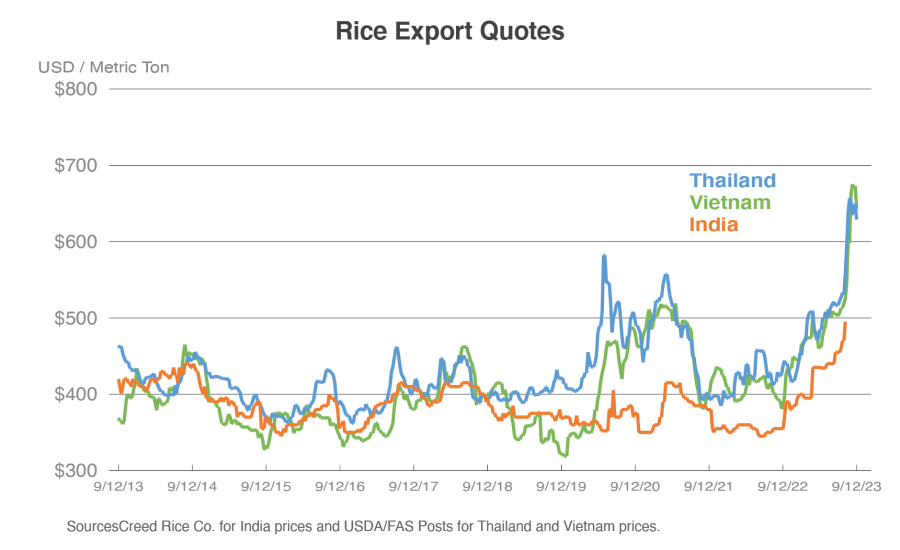Browse Data and Analysis
Filter
Search Data and Analysis
- 14 results found
- (-) September 2023
- (-) March 2023
- (-) Thailand
- Clear all
Thailand’s export prices fell a further one percent as the Thai baht continues to weaken.
Thailand’s export prices fell a further one percent as the Thai baht continues to weaken.
India, the world’s largest rice exporter, disrupted global rice markets by banning white rice exports in July 2023, before placing an export tax on parboiled rice exports in August 2023.
Thailand’s domestic and export prices dropped 1-3 percent in response to reduced demand and a further weakening of the Thai baht.
Thailand’s domestic and export prices grew 1-3 percent as demand for Thai rice surges in response to rice export bans by India and Burma.
FAS Bangkok estimates Thailand’s chicken meat production to marginally increase in 2023 amid a surge in exports, a slow recovery in the tourism sector and high feed costs.
Reflecting strong demand for Thai rice, domestic and export prices grew 1-3 percent this week.
Rice export prices increased 2-3 percent, reflecting new inquiries that offset the depreciation of the Thai baht.
Rice export prices increased 2-3 percent due to the strengthening of the Thai baht which offset the downward pressure on domestic rice prices.
Post forecasts MY2022/23 cotton imports to increase 4 percent but remain well below the 5-year average annual import demand from MY2017/18 – MY2021/22 in anticipation of slow economic recovery in 2023.
Post forecasts that MY2023/24 rice production will reach a five-year record of 20.4 million metric tons due to abundant water supplies and attractive farm-gate prices.
Rice export prices decreased 1 percent as new supplies of MY2022/23 off-season rice continued entering the market.

